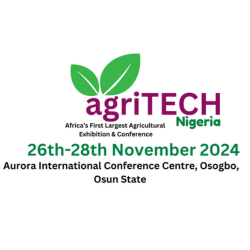The Global Environment Facility (GEF) has approved an $18 million funding package for the African Development Bank (AfDB), earmarked for two pivotal projects: sustainable management of the Zambezi River and electronic waste reduction in East Africa.
The GEF Board meeting in Washington, DC, USA, recently approved the GEF contribution.
The Global Electronic Product Management (GEM) Program in East Africa, focusing on Ethiopia, Somalia, and Djibouti, is allocated $7.8 million of the GEF funding. This program aims to encourage the circular economy and significantly reduce the production of electronic waste.
Anthony Nyong, Director of the Climate Change and Green Growth Department at AfDB, highlighted the urgency of addressing e-waste: “The exponential growth of electronic waste necessitates immediate action. Our goal is to foster circularity, encouraging the reuse and recycling of electronic products within the region.”
The importance of this initiative is underscored by alarming statistics from the United Nations Global E-waste Monitor report, which revealed that 54 million tonnes of electronic waste were generated globally in 2019—a 21% increase in just five years.
Despite this, only 17% of this waste is collected and recycled, with major contributors like China, the United States, and India generating approximately 20 million tonnes annually.
In contrast, while Ethiopia and other African nations produce relatively low amounts of e-waste (50 grams per inhabitant per year, according to Statista), they have increasingly become dumping grounds for waste exported from European countries.
Through the GEM program, AfDB seeks to mitigate this issue by promoting the circular economy, ensuring electronic products are reused and recycled locally rather than becoming environmental hazards.
The remaining $10.5 million from the GEF funding will support the Strengthening Zambezi River Basin Management for Climate Resilience and Ecosystem Health project.
This initiative, which surpasses the project’s initial $9.4 million budget, aims to enhance collaborative management of water, energy, food, and environmental resources across the 2,750 km Zambezi River basin, which spans eight countries: Zambia, Zimbabwe, Botswana, Malawi, Mozambique, Namibia, Tanzania, and Angola.
The AfDB highlighted the strategic importance of this funding: “Millions of people will benefit from advancements in agriculture, fisheries, and dam exploitation. Moreover, cross-border cooperation, integrated planning, and adaptive management practices will be strengthened to ensure the resilience of the basin and the health of the ecosystem.”
The dual focus of this funding underscores AfDB’s commitment to addressing critical environmental challenges in Africa.
By targeting e-waste reduction and sustainable river basin management, the bank aims to foster resilience and sustainability across the continent.
As Alain Ebobissé, Director of Africa50, emphasized in a recent partnership agreement with IRENA, the transition to renewable energy and sustainable practices is vital for Africa’s development.
“Investing in transformational renewable infrastructure is essential to achieving carbon neutrality and combating climate change,” he stated.
The AfDB’s initiatives, backed by GEF funding, represent a significant step towards a more sustainable future for Africa, addressing both immediate environmental concerns and long-term developmental goals.

